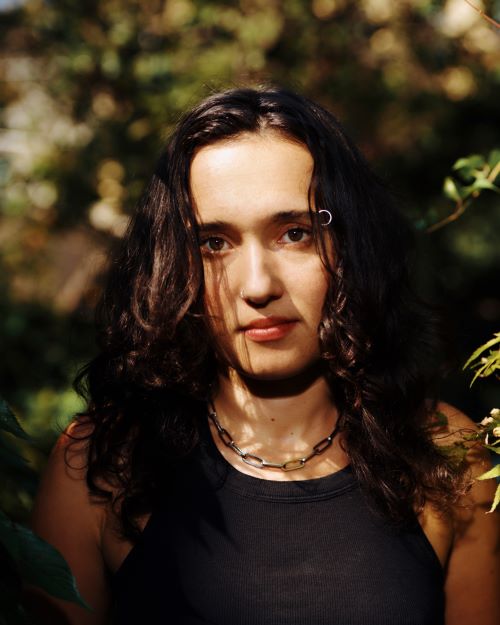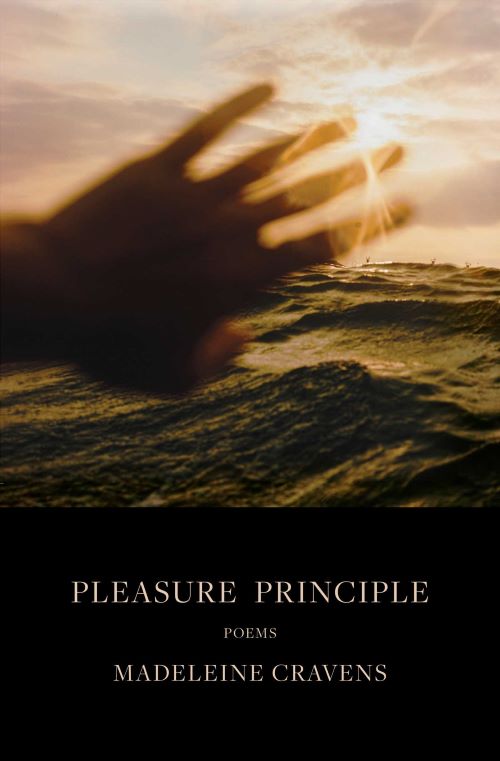I want to know how things will end. I’ve heard of the beginning,how grains of pollen fell from the poplars. Then a little choralmusic, cavalry, bright skirmish on the hillside, a thousandyears of this. Here is a flute and here is a steamship. Here is a gunand your grandmother’s ring. The devil has seven blue heads,and when we draw him on the inside of the chapel, each onetells a different lie. How many gods do you believe in?How many good men? The story of the world can be toldin relation to umbrellas, invented in the seventh centurywhen we finally had enough rain. Don’t look at the gundirectly. And don’t remove the flute from its sheath of ice.The end’s already in motion, the end was starting this wholetime and today Brooklyn is a beautiful, devastating autumn.Everyone I love is dancing in the plaza. A band plays belowthe archway, we’re drinking wine and rolling up our sleevesto show the soft parts of our arms. When this ends I hopeit ends completely. How brave I feel, right now, watchingmy old friends beside my father and imagining the endas one imagines something certain, a birthday or a doctor’svisit. Not like last year when we watched the movie aboutruins—I ignored the crusted amphitheater and wantedto touch you. It was February. You wore a long blue coat.
Object Permanence
Feature Date
- June 4, 2024
Series
Selected By
Share This Poem
Print This Poem
“Object Permanence” from PLEASURE PRINCIPLE: by Madeleine Cravens.
Published by Scribner on June 4, 2024.
Copyright © 2024 by Madeleine Cravens.
All rights reserved.
Reproduced by Poetry Daily with permission.

Madeleine Cravens was a 2022–2024 Wallace Stegner Fellow at Stanford University. Her poems can be found in the New Yorker, the Nation, Kenyon Review, Best New Poets and elsewhere. She has been the recipient of fellowships from MacDowell, the Sewanee Writers Conference, and the New York State Summer Writers Institute. She was raised in Brooklyn and currently lives in Oakland. Pleasure Principle is her debut collection.
“To blurb a poetry collection is often to participate in a tradition of commercial hyperbole that great poetry itself resists; books like Madeleine Cravens’s brilliant and utterly crystalline debut make this contradiction all the starker. Here is a poetics of quiet resistance and shining anti-epiphany, of queer surplus matched with lyric understatement. Spare yet lush, cerebral yet sensual, Pleasure Principle draws our attention toward a world at once lovable and unlivable, where, if we are very attentive, we might find ‘not the pleasure of lessons but the pleasure of errors.’”
—Maggie Millner, author of Couplets
“In Madeleine Cravens’s Pleasure Principle, a tough particularness operates perfectly in tandem with a subtle musicality and a relentlessness of vision, a commitment to saying what has been experienced just as it was experienced, and what has been imagined as if it had been experienced. And yet these poems are also poems that acknowledge the world as governed by possibility as much as by pattern—when Cravens writes, ‘There was a world inside the world. I wanted the hard pit,’ she is writing her way toward a possible world, the world in the seed in the world. This book is itself such a seed, both the beginning of a poet and a renewal of poetry.”
—Shane McCrae, author of Pulling the Chariot of the Sun
“Madeleine Cravens’s Pleasure Principle draws the world with an astounding clarity of vision, yet every setting is infused with tenderness. These are taut and quiet poems, driven by an exhilarating lyric sensibility. The book begins where a photograph would end—her lines hum with the frequency of unseen light, hidden desires, forgotten objects, and memories retrieved from the mystery of childhood. A truly wonderful debut announcing a poet assured of her voice.”
—Aria Aber, author of Hard Damage
Poetry Daily Depends on You
With your support, we make reading the best contemporary poetry a treasured daily experience. Consider a contribution today.




